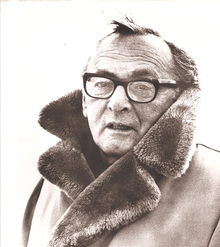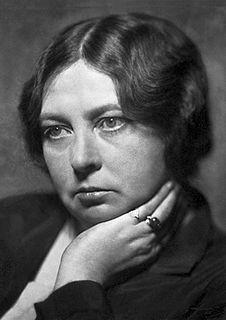A Quote by David Brin
Learn to control ego. Humans hold their dogmas and biases too tightly, and we only think that our opponents are dogmatic! But we all need criticism. Criticism is the only known antidote to error.
Related Quotes
I don't have a very high opinion, actually, of the world of criticism - or the practice of criticism. I think I admire art criticism, criticism of painting and sculpture, far more than I do that of say films and books, literary or film criticism. But I don't much like the practice. I think there are an awful lot of bad people in it.
Criticism will need an injection of humility that is, a recognition of its role as ancillary to the arts, needed only occasionally in a temporary capacity. Since the critic exists only for introducing and explaining, he must be readily intelligible; he has no special vocabulary: criticism is in no way a science or a system.
That was one of the big problems in the [Black Panther] Party. Criticism and self-criticism were not encouraged, and the little that was given often wasn’t taken seriously. Constructive criticism and self-criticism are extremely important for any revolutionary organization. Without them, people tend to drown in their mistakes, not learn from them.
Virgil Thomson, the great classical music critic, who was also a composer, but said that criticism was the only antidote he knew to pay publicity. Critics at their best are independent voices people take seriously their responsibility to see as many things as they can see, put them in the widest possible perspective, educate their readers, I really do think of myself as a teacher. Newspapers that don't carry arts criticism at all while not fulfill this function. And probably their arts journalism will be deprived as a result.
I hate orthodox criticism. I don't mean great criticism, like that of Matthew Arnold and others, but the usual small niggling, fussy-mussy criticism, which thinks it can improve people by telling them where they are wrong, and results only in putting them in straitjackets of hesitancy and self-consciousness, and weazening all vision and bravery.
We do not believe any group of men adequate enough or wise enough to operate without scrutiny or without criticism. We know that the only way to avoid error is to detect it, that the only way to detect it is to be free to inquire. We know that in secrecy error, undetected, will flourish and subvert.
In the spiritual domain, criticism is love turned sour. In a wholesome spiritual life there is no room for criticism. The critical faculty is an intellectual one, not a moral one. If criticism becomes a habit it will destroy the moral energy of the life and paralyse spiritual force. The only person who can criticise human beings is the Holy Spirit.
Giving importance to what we think because we thought it, taking our own selves not only (to quote the Greek philosopher) as the measure of all things but as their norm or standard, we create in ourselves, if not an interpretation, at least a criticism of the universe, which we don't even know and therefore cannot criticize. The giddiest, most weak-minded of us then promote that criticism to an interpretation that's superimposed, like a hallucination; induced rather than deduced. It's a hallucination in the strict sense, being an illusion based on something only dimly seen.

































